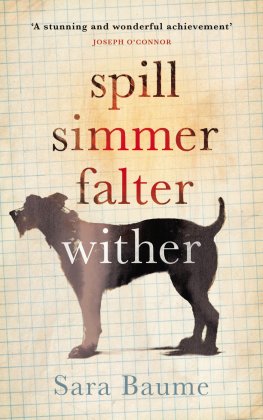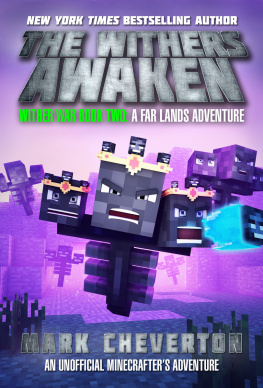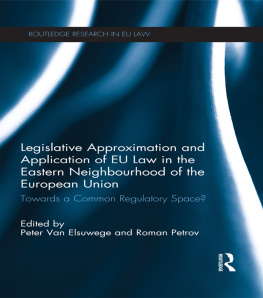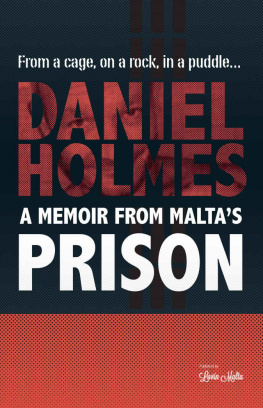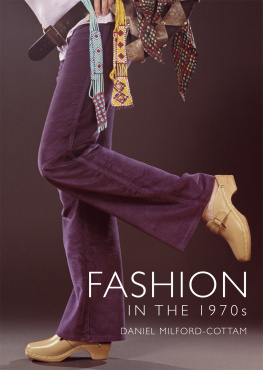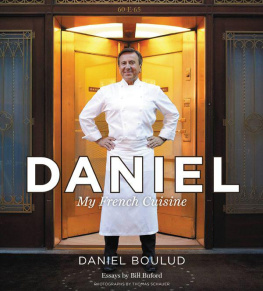Barakaldo Books 2020, all rights reserved. No part of this publication may be reproduced, stored in a retrieval system or transmitted by any means, electrical, mechanical or otherwise without the written permission of the copyright holder.
Publishers Note
Although in most cases we have retained the Authors original spelling and grammar to authentically reproduce the work of the Author and the original intent of such material, some additional notes and clarifications have been added for the modern readers benefit.
We have also made every effort to include all maps and illustrations of the original edition the limitations of formatting do not allow of including larger maps, we will upload as many of these maps as possible.
LET MY RIGHT HAND WITHER
BY
DANIEL SPICEHANDLER
TABLE OF CONTENTS
Contents
TABLE OF CONTENTS
REQUEST FROM THE PUBLISHER
DEDICATION
To Moriah Brigade and the Squadron; to my Father, the Kobaks, and Little Yoav; last of all, to my Mother, who knew this book would be published before she even read it...
ACKNOWLEDGMENT
To Dov and Aliza, Ezra and Skippy, who shared these experiences with me. My thanks to Bob Keller, Uri Ribalow, Carl Alpert and Ralph Martin, who helped in getting this book published. Many thanks to the friends who helped in giving suggestions to improve this book...and to Louise.
introduction
THIS IS A STORY of a war of independence. This is a chronicle of a peoples redemption, an epic of retribute justice...
The world has taught us that only through blood can ones good name be restored. With blood and fire Judah fell, with blood and fire Judah shall rise. It rose. It rose to meet its fate. It rose after centuries of agonizing, humiliating persecution, to redeem its honor and the honor of its many martyrs through the centuries.
I have tried through my own experiences, first as a G.I. student at the Hebrew University in Jerusalem, and later as a volunteer in the defense of Israel, to depict the life in Israel during the past few crucial years. I have tried to describe the many tremendous changes embroidered in the one major transformation of Palestine, 1946, to Israel, 1949. The underground struggle, the life in the cities and farm communities, the constant preparation for the eventuality of a war which every Jew in Palestine knew was inevitable, the early struggle against local Arab gangs, and finally, the struggle against the seven invading Arab armies.
The events in this book are true.
Through the events that my wife, some friends and myself, all Americans, have participated in, I have tried to paint a picture of the rebirth of Israel, spiritually as well as physically. And I have taken the liberty of injecting, throughout the text, small incidents in which I had no active part, but of which I have heard or read. These incidents typify the fighting and living in Israel during these fateful years. They are included in the hope that they will contribute to a better understanding of the new Jew, the Sabra, who is growing up with Israel.
The American reader, I am sure, will notice the close resemblance of the youth of Israel to his own youth. The former G.I. will be amazed to see how closely the Palmachnick resembles him in the last war. And the scene of Palestine, and later Israel, as a frontier country, will remind Americans of the struggle America once had in its fight for independence.
The world may be proud that included in this pessimistic era one speck, one small niche, has crowned itself in glory and heroism. Sodom was destroyed because it had not one righteous soul amongst its inhabitants. The world, today, may well be redeemed because of the long injustice that has been eradicated by Israels victory...
By the rivers of Babylon,
there we sat down, Yea we wept
when we remembered Zion.
Upon the poplars in the midst of her,
We hung our harps.
For there our captors demanded of us songs
and our tormentors mirth:
Sing us some of the songs of Zion!
How could we sing the songs of the Lord
in a foreign land?
If I forget thee O Jerusalem,
let my right hand wither!
May my tongue stick to my palate
if I set not Jerusalem
above my highest joy!...
PSALMS 137
arise ye arabs and awake...
(ODE TO IBRAHIM)
WE LEFT Rehovot at ten thirty-five in the morning. Rehovot is about ten miles south of Tel Aviv and was used as a rendezvous point for Jerusalem bound convoys. The sun was hot and the armored bus had a slightly stale odor of sweat and onions. This was a convoy going to Jerusalem on the long, dusty road not used in recent years, but being used now, on this nineteenth day of January, 1948.
The main road to Jerusalem via Lydda and Ramie towns had been cut by the Arabs at the outbreak of the war last month. Now, coming up from the coast, on their way to Jerusalem, Jews had to travel six hours in armored vehicles.
The armored bus, a makeshift invention, had the appearance of a boxcart. All windows were sealed with inch-thick wood. Little gun slits took the place of windows. Seats were replaced by three parallel rows of benches. The drivers windshield was guarded by a thick layer of armor plate which he could raise and lower as he pleased. Every-space on the benches was taken and people were huddled against one another. I sat in the middle of the bus with my arm around Louise, my wife. We were returning to Jerusalem. I was one among the many G.I. students who had come to Palestine to study at the Hebrew University in Jerusalem. My wife and I had spent the summer months at a kibbutz, an agricultural communal settlement, and we were now returning to school for the winter semester.
This boxcart bus was one of the many vehicles in the morning convoy to Jerusalem. Twice daily these long convoys left and returned from the Holy City. Twice daily the people of Jerusalem felt that the world and their brethren had not forsaken them. They thought...
I sat holding Louises hand tightly. My sweaty palm dampened her soft dry hand. I thought of all we had been through together in so short a time. Our courtship, the quick elopment, school out at Wisconsin, and then finally our trip to Palestine and its many ensuing adventures. We had just left the kibbutz where we had stayed for seven months and found that we could not adjust to the hard communal agricultural life. Now we were returning to a war torn city, so different from the one we left last July. I wondered what lay in store for us. I wondered if wed get through on this convoy.
The bus rumbled and shook as it bounced down through the last Jewish settlements. The passengers were munching on oranges, sandwiches, chocolate, the usual travel foods. Already the usual fraternity of a long bus trip was felt. Every passenger knew that his fate was entwined with that of every other person on the bus, especially the young girl and boy sitting in the front seats of the bus, their defenders. The Sten gun beneath her skirt and the American Colt beneath his belt were all the protection afforded the passengers of this bus by the Haganah, the illegal Jewish underground defense organization, which was still poor in arms and as yet hounded by the government, the British.




